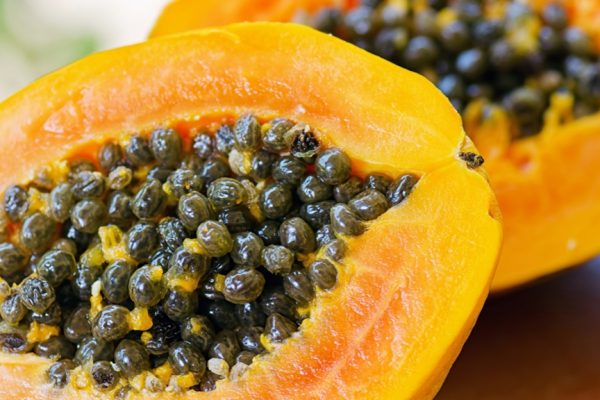There has been a global movement toward healthier living. It seems that consumers are very rapidly becoming disenchanted with fast food and man-made Franken chemicals as far as health is concerned. One of the ways that this disenchantment has been manifest is thorough the increased interest in organic health products. In the United Kingdom, one product that has been attracting some serious attention from those interested in improving their quality of life using time-proven, natural products are Kefir Grains. Kefir grains are combinations of yeast and bacteria that thrive on an environment of various types of dairy. It has been compared to yoghurt – but it is unique in appearance and texture. Some health gurus have compared the appearance to that of very fine cauliflower grains.
The grains are now most often consumed in a drinkable form with the generic name (now widespread) of ‘Kefir’. The drink is said to have its origins in the mountains that form the divide between Asia and Europe. Loosely speaking it could be compared to yoghurt (as mentioned), but it does differ in some important ways. It is far more liquid – a drink rather than a semi-solid food. It boasts a tart, slightly sour taste and has distinct ‘fizz’- the result of the fermentation process which releases carbon dioxide.
But these dry facts still do not reveal why ‘kefir’ has become so popular in the UK. it does taste good – and is tremendously refreshing. However, it is the health and nutritional benefits that are attracting more and more consumers interested in a more natural approach to a more holistic lifestyle. It is a great source of calcium and is incredibly rich in probiotic bacteria. According to a study by the Department of Nutrition and Health at a Brazilian University, those probiotic bacteria are tremendously valuable in maintaining good health. You can buy kefir products here.

Firstly, probiotic bacteria are valuable in maintaining good digestive health. Those with Irritable Bowel Syndrome (IBS) enjoying Kefir may experience an easing of the symptoms. Initial research also indicates that Kefir may have benefits for those who have high blood pressure and other conditions that affect the proper functioning of the circulatory system such as high cholesterol and problems associated with maintaining optimal blood sugar levels.
Although the substrate that is used to grow Kefir is dairy-based (there are many different types of milk that are used) the fermentation process breaks down lactic acid – making Kefir an ideal health drink for those who suffer from lactose intolerance. However, for those who suffer from inflammatory bowel disease (IBD) or IBS there is a caveat to its consumption. In certain cases, consuming fermented food items can lead to an increase in discomfort. If you suffer from these conditions, it is a good idea to consult with your GP before consuming Kefir on a regular basis.
There have been some preliminary indications that the sorts of probiotic bacteria that are found in Kefir may assist those who are focused on weight loss. The lactobacillus species of bacteria have been implicated in weight changes – but more research is needed before these claims can be verified.
It is self-evident that the consumption of Kefir can assist in maintaining optimum bone health – especially when it comes to issues affecting bone density in older consumers. The milk substrate on which Kefir is based is an exceptional source of both calcium and vitamin K, both of which are essential to the health of bones – especially in post-menopausal women. However, once again more research is needed into whether Kefir is superior in providing benefits that are superior to those delivered by other dairy products.
There is also a growing body of research that indicates that the regular consumption of Kefir may be of use in reducing the effects of inflammation. The LAB bacteria contained in Kefir have been proven to reduce the chronic pain associated with rheumatoid arthritis and IBD. However, once again the question of whether Kefir is a superior delivery mechanism for LAB bacteria is the subject of further study and peer-reviewed results are few and far between.
One of the attractions of Kefir is that it is a natural product, however, that is not to say that there have not been reports (although rare) of mild side effects related to its consumption. It is, after all, a fermented product – and those can include issues such as constipation or diarrhea. If a consumer is not used to the consumption of fermented products the advice is to start slowly.
Even given the dearth of scientifically rigorous research, it is apparent that Kefir holds great promise in the treatment of various chronic conditions. For those in the UK interested in natural approaches to health, the consumption of Kefir will, by and large only hold the promise of relief – hence its ongoing popularity.





